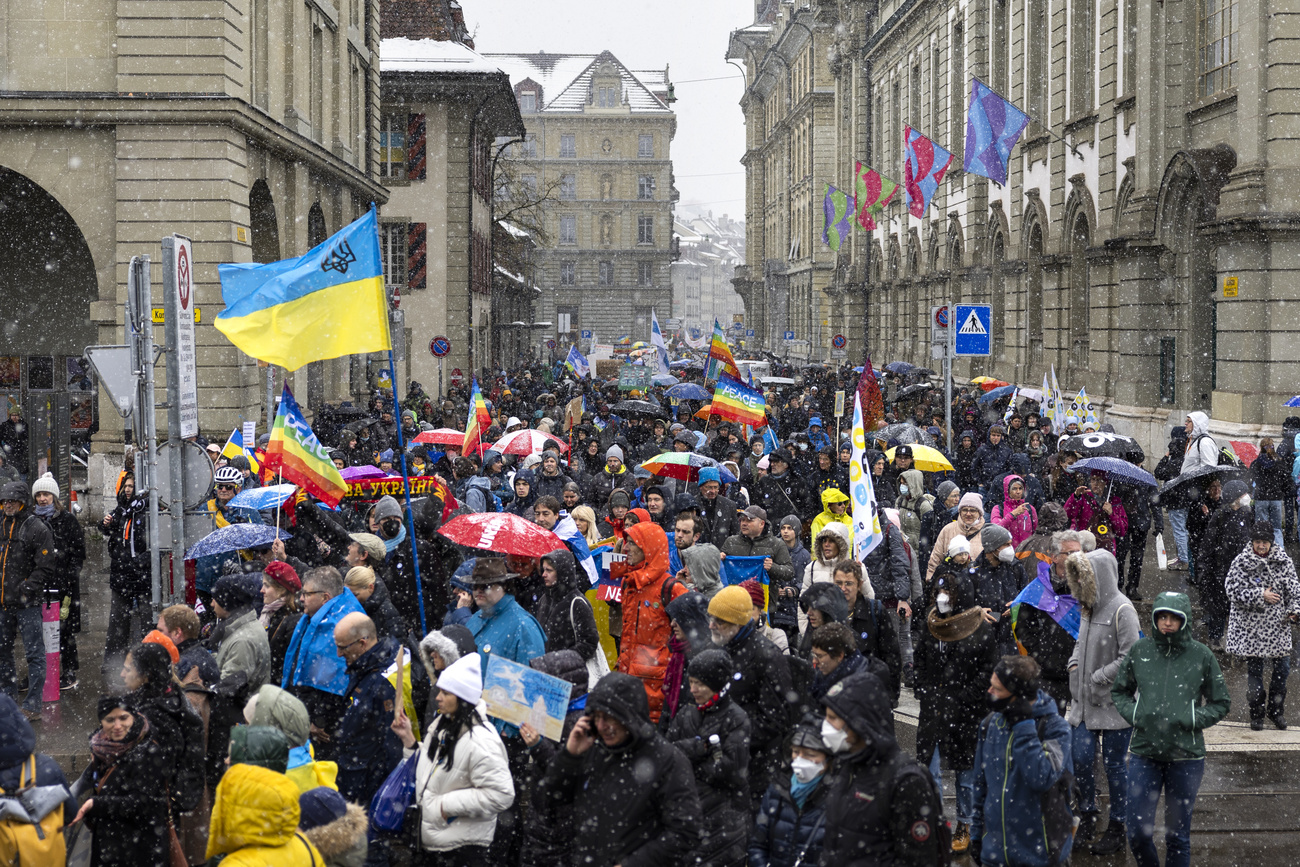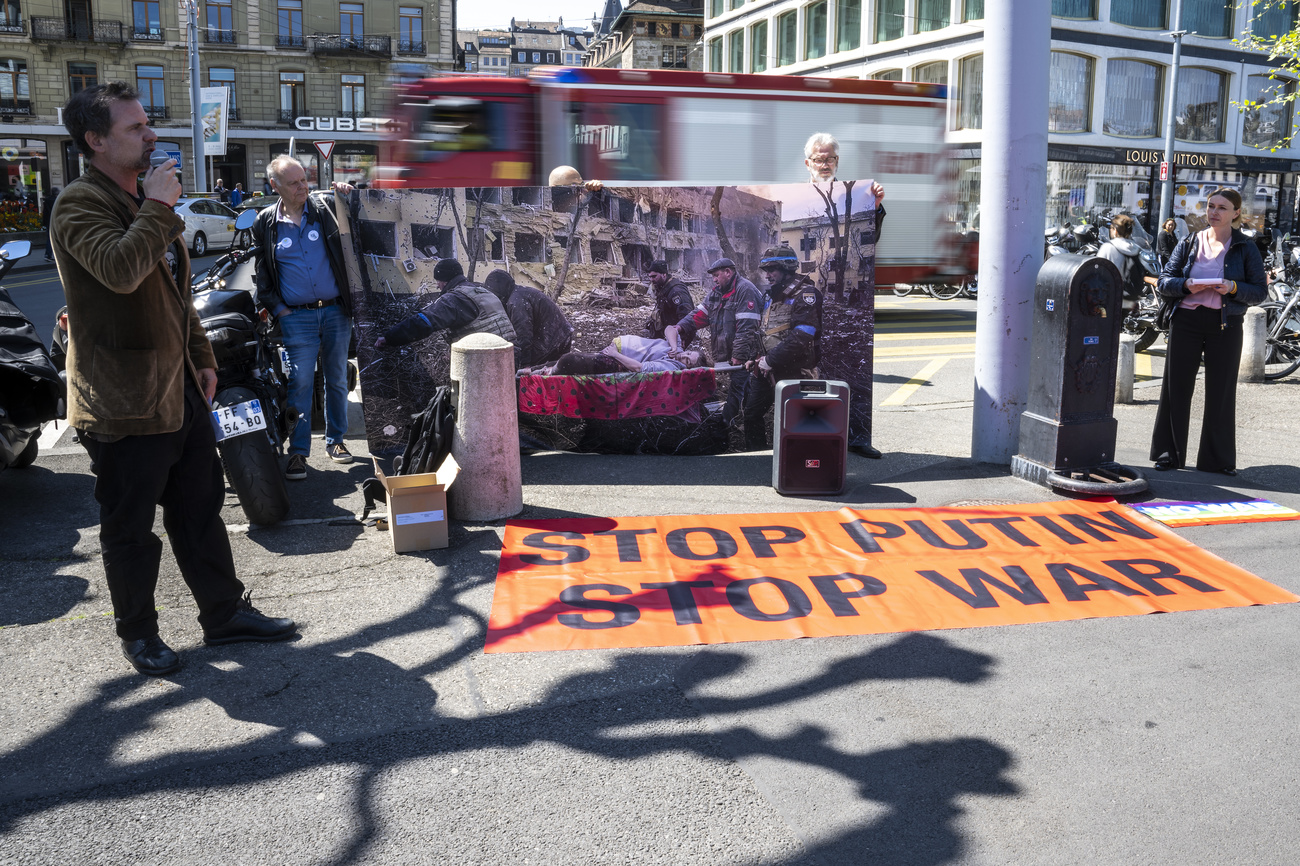
Swiss note another slight rise in frozen Russian funds

Since Russia's invasion of Ukraine in February and the start of Western sanctions, Switzerland has frozen some CHF7.5 billion ($7.9 billion) of Russian funds, authorities have said.
The figure, a slight increase on the CHF6.7 billion reported in July, encompasses the sanctions on 1,239 individuals, 116 businesses and 15 properties, the State Secretariat for Economic Affairs (SECO) wrote on ThursdayExternal link. It was valid as of November 25.
The overview also included figures on the amount of non-sanctioned Russian-owned assets in Switzerland, flagged by June 3 this year as part of a new reporting obligation. This total came to CHF46.1 billion, divided among 123 person or entities and 7,548 business relationships, the economics ministry said.
On November 30, the European Commission said EU member states had so far frozen €19 billion (CHF18.7 billion) of assets from Russian oligarchs.
The EC also wants to invest these funds and use the proceeds to help rebuild Ukraine, but the plan faces legal obstacles.
Britain recently said it had frozen £18.4 billion (CHF21 billion) by mid-October.
On Thursday, SECO clarified that Swiss or European Economic Area (EEA) citizens and legal residents are exempt from the ban on depositing new funds, as well as from the reporting requirement. The requirement is also only valid for deposits over CHF100,000. As such, SECO said, the level of reported assets “can therefore not be equated with the total amount of funds of Russian origin held in Switzerland”.
Since the Swiss government opted on February 28 to follow initial European Union (EU) sanctions against Russia, it has consistently been updating its list of blacklisted firms and individuals, and has followed each round of EU sanctions – most recently, the eighth package targeting the Russian oil sector.
NGOs, and sometimes international critics, have however continued to claim that authorities are not doing enough to clamp down on the large volumes of Russian money in the country.

More
Is Switzerland doing enough to freeze Russian assets?

In compliance with the JTI standards
More: SWI swissinfo.ch certified by the Journalism Trust Initiative

























You can find an overview of ongoing debates with our journalists here . Please join us!
If you want to start a conversation about a topic raised in this article or want to report factual errors, email us at english@swissinfo.ch.